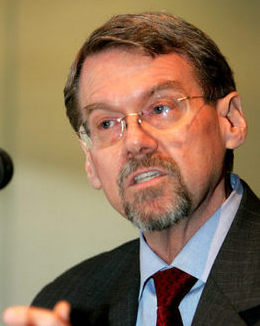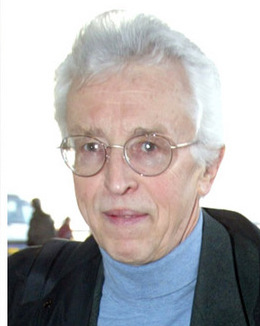Posted on : Nov.17,2006 15:02 KST
Modified on : Nov.18,2006 20:23 KST
 |
|
Jack Pritchard, president of the Korea Economic Institute
|
Six-party talks likely to see a more assertive Pyongyang, experts say after visit to North
Siegfried Hecker, a professor at the Center for International Security and Cooperation, Jack Pritchard, president of the Korea Economic Institute, and Robert Carlin, a North Korea expert and visiting scholar at Stanford University, visited North Korea from October 31 to November 4, the first U.S. experts there since the North performed a nuclear test on October 9.
In a press conference on November 15, the three said that North Korea may be tougher to negotiate with at the next round of six-party talks, a forum that was stalled for over a year but which saw progress in late October, when the North agreed to return to the negotiating table.
Kim Kye-gwan, North Korea’s top negotiator at the six-party talks, and deputy negotiator Lee Keun said they will discuss financial sanctions imposed upon the North by the U.S. at the next round of talks, according to Prichard. In addition, the two top North Korean envoys to the talks said they agreed with the U.S. plan to set up a working-level group to discuss counterfeiting and money laundering issues, Prichard said.
 |
|
Siegfried Hecker, a professor at the Center for International Security and Cooperation
|
The North Korean government officials also said that Christopher Hill, U.S. top negotiator for the six-party talks, and his North Korean counterpart Kim agreed at the October 31 meeting to restart the six-party talks that China would lift its freeze on North Korean funds at Macao-based Banco Delta Asia and the U.S. would not intervene in the process. But Chinese officials did not totally agree with the North’s account of events, Prichard said. Moreover, North Korean officials emphasized that the decision to return to the six-party talks was solely theirs, not influenced by China’s arbitration, as is generally believed.
Hecker, a nuclear physicist and former director of the U.S.’s Los Alamos National Laboratory, said North Korea’s nuclear test is seen overall as having been successful. Hecker made the remarks after meeting with officials at North Korea’s nuclear facility at Yongbyon (Yeongbyeon) as well as with Chinese nuclear experts. However, Hecker said he did not meet the North Korean experts in charge of the nuclear test.
Referring to the actual test yield of one kiloton, which was smaller than the North’s notice to China that the blast would be as large as four kilotons, Hecker said that North Korea might have performed the low-yield test in order to safely control the underground test, citing Chinese experts. He added that North Korea may have extracted 40 to 50 kilograms of plutonium, which would allow North Korea to build six to eight nuclear bombs. Hecker believed North Korea used about six kilograms of plutonium for the nuclear test.
Carlin, marking his 26th visit to North Korea, said that he was somewhat impressed by North Korea’s seemingly improved economic situation, and that it was difficult to sense the pinch felt by China’s economic sanctions against the North. Citing Chinese officials in North Korea, Carlin said China has not and will not cut off food and oil supply to North Korea. According to the U.S. team, the Chinese officials said they did not stop aiding North Korea because the North Korean regime will be strengthened if sanctions are imposed. Previously, China was hit with sanctions from the former Soviet Union when China developed nuclear weapons.
Meanwhile, Japan’s Nihon Keizai newspaper reported on November 16 that China’s Construction Bank had resumed cash remittance services to North Korea this week. The bank’s official in Dandong said he was told to resume the services early this week. Other Chinese banks have kept their North Korean remittance services on hold since the nuclear test.
[englishhani@hani.co.kr]







